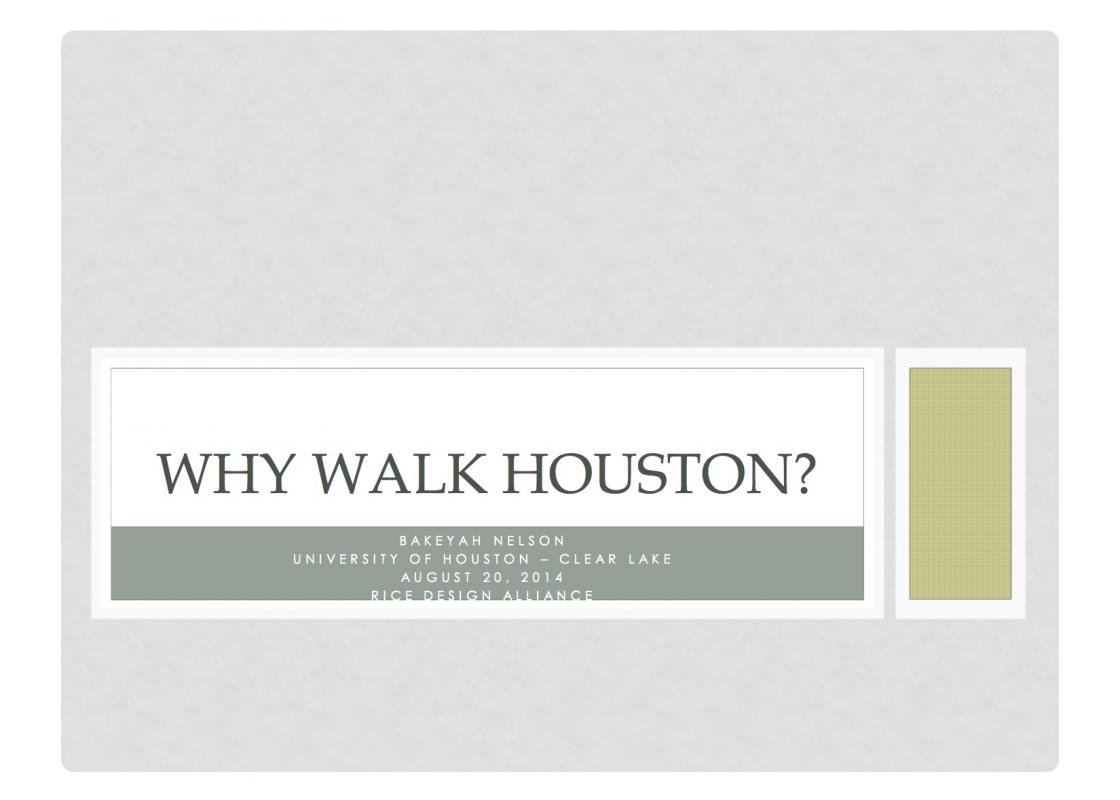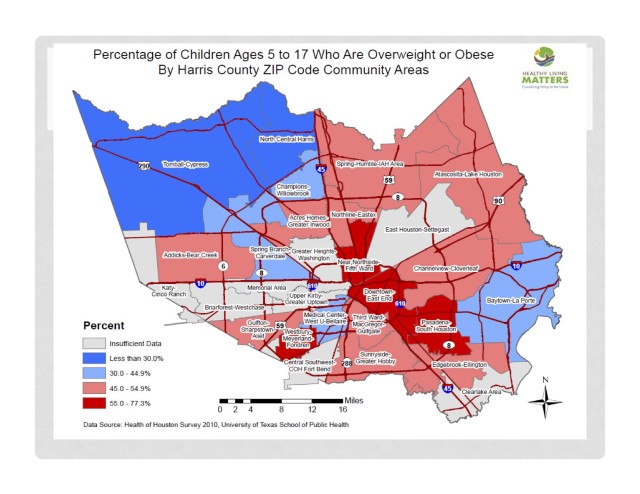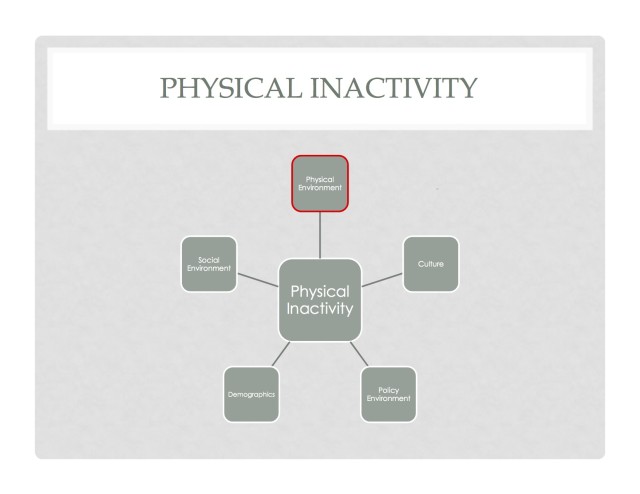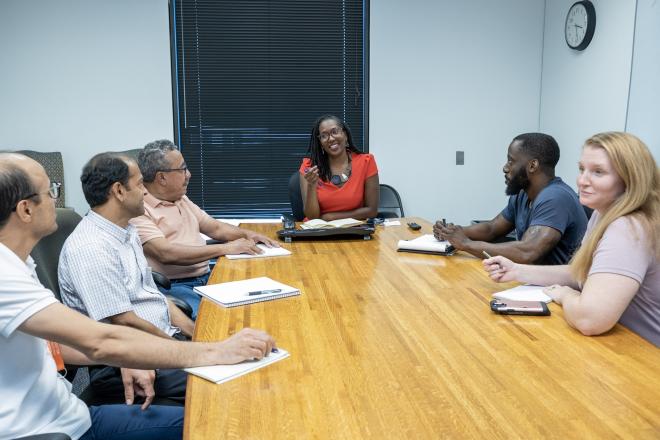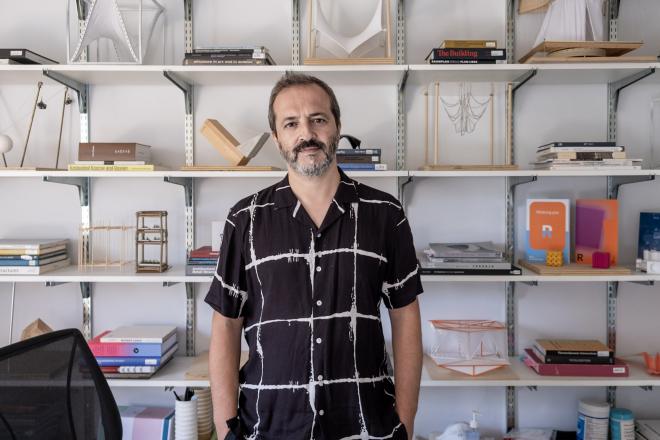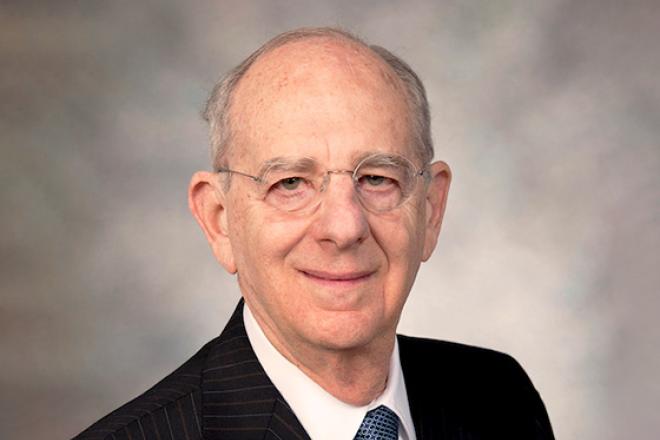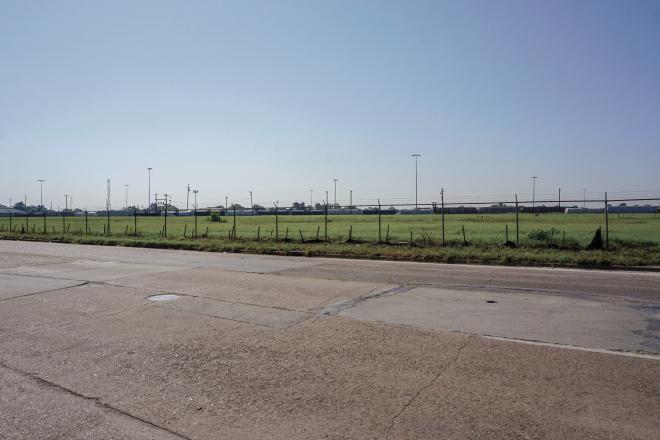Forty-four percent of children between 5 and 17 in Harris County are overweight or obese, according to the 2010 Health of Houston Survey. That comes out to about 400,000 children.
“Just to put that into perspective, that’s roughly the size of the city of Miami,” said Dr. Bakeyah Nelson at the Rice Design Alliance’s recent Walk Houston civic forum. Dr. Nelson, Assistant Professor, Exercise and Health Sciences, University of Houston, Clear Lake, was careful to note that more local data are needed, and that our local childhood overweight/obesity estimates range from 1-in-3 to 1-in-2 children in Harris County. A study of Houston-area fourth-graders published in 2010 reported that 46 percent were overweight or obese. (A video of Dr. Nelson's talk is below.)
Weight is not necessarily a problem in and of itself. If an obese child is bullied, it is the bully who needs to change. Our cultural tendencies to discriminate, and our extreme standards of beauty, can and should change as well. However, even if we can become a society that accepts different types of bodies, the outlook for these children is bleak. They might be part of the first generation of Americans to have a shorter lifespan than their parents. Consider these numbers that Dr. Nelson shared from the Health of Houston Survey:
- 11 percent of us have a diabetes diagnosis
- 20 percent of people in some of our communities have a diabetes diagnosis
- 1 in 3 people here have high blood pressure
Obesity, diabetes, and high blood pressure are all chronic diseases related to low levels of physical inactivity. Dr. Nelson's presentation focused on underlying causes of that inactivity.
“There are a number of factors that influence physical activity and behavior. The built environment is just one,” said Nelson. “Things such as culture, race, ethnicity, the policy environment --- all of these factors influence whether people walk and how much they walk.”
The greatest supporters of urbanism, it turns out, are not necessarily to be found on the planning commission but in the health department. Public health scientists have the perspective, and the data, to back up calls for complete streets, pedestrian promenades, bike lanes, and all the other methods of making it more possible for physical activity to be a part of daily life.
Approximately 77 percent of children in Harris County are not getting the hour of daily physical activity recommended by the Centers for Disease Control and Prevention. Adults need two and half hours of physical activity per week. That comes out to 30 minutes a day, five days a week.
These numbers are daunting if physical activity means CrossFit or hot yoga or swimming laps. That’s not what Dr. Nelson means.
“Neighborhoods are really where health is created,” Nelson said. “We used to believe that in order to gain the health benefits from exercise that it had to be vigorous and intense, but in fact we are learning that is not the case. You can improve your health by walking 30 minutes a day, and it doesn’t have to be all at one time. You can walk in 10-minute sessions throughout your day and still gain the health benefits from walking. If we can create walking opportunities, if workers can walk throughout the day to different destinations that they have to go, they can fit that activity in during their day. They won’t have to carve out time to go to a gym or fit it into another part of the day. It becomes a routine part of their life instead of an extra task they have to complete."
In the second part of the civic forum, Carra Moroni of the Houston Department of Health and Human Services shared some impressive numbers for physical activity that took place at the recent Sunday Streets HTX pilot program. Participants walked between 60 and 80 minutes. If those numbers were achieved every week, all over Houston, we would make a serious step towards a healthier city. And if Houston is to thrive, the shift in our relationship to the built environment seen at Sunday Streets will have to multiply.
More >>>
See other posts related to the WALK HOUSTON civic forum: Kinder Baumgardner on Uber, self-driving cars, and walkability; Clark Martinson on walkability in Houston's Energy Corridor


